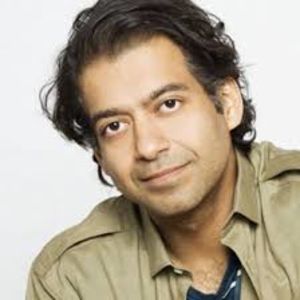Want to know what books Ryan Stephens recommends on their reading list? We've researched interviews, social media posts, podcasts, and articles to build a comprehensive list of Ryan Stephens's favorite book recommendations of all time.
1

In the tradition of Jon Krakauer’s Into Thin Air and Sebastian Junger’s The Perfect Storm comes a true tale of riveting adventure in which two weekend scuba divers risk everything to solve a great historical mystery–and make history themselves.
For John Chatterton and Richie Kohler, deep wreck diving was more than a sport. Testing themselves against treacherous currents, braving depths that induced hallucinatory effects, navigating through wreckage as perilous as a minefield, they pushed themselves to their limits and beyond, brushing against death more than once in... more In the tradition of Jon Krakauer’s Into Thin Air and Sebastian Junger’s The Perfect Storm comes a true tale of riveting adventure in which two weekend scuba divers risk everything to solve a great historical mystery–and make history themselves.
For John Chatterton and Richie Kohler, deep wreck diving was more than a sport. Testing themselves against treacherous currents, braving depths that induced hallucinatory effects, navigating through wreckage as perilous as a minefield, they pushed themselves to their limits and beyond, brushing against death more than once in the rusting hulks of sunken ships.
But in the fall of 1991, not even these courageous divers were prepared for what they found 230 feet below the surface, in the frigid Atlantic waters sixty miles off the coast of New Jersey: a World War II German U-boat, its ruined interior a macabre wasteland of twisted metal, tangled wires, and human bones–all buried under decades of accumulated sediment.
No identifying marks were visible on the submarine or the few artifacts brought to the surface. No historian, expert, or government had a clue as to which U-boat the men had found. In fact, the official records all agreed that there simply could not be a sunken U-boat and crew at that location.
Over the next six years, an elite team of divers embarked on a quest to solve the mystery. Some of them would not live to see its end. Chatterton and Kohler, at first bitter rivals, would be drawn into a friendship that deepened to an almost mystical sense of brotherhood with each other and with the drowned U-boat sailors–former enemies of their country. As the men’s marriages frayed under the pressure of a shared obsession, their dives grew more daring, and each realized that he was hunting more than the identities of a lost U-boat and its nameless crew.
Author Robert Kurson’s account of this quest is at once thrilling and emotionally complex, and it is written with a vivid sense of what divers actually experience when they meet the dangers of the ocean’s underworld. The story of Shadow Divers often seems too amazing to be true, but it all happened, two hundred thirty feet down, in the deep blue sea.
(front flap) less 
Ryan Stephens@Jon_Finkel Shadow Divers may be my favorite narrative non-fiction book, ever.
I don't think I've recommended it to one person who didn't love it. (Source)
2

Will Durant, Ariel Durant | 4.32
Will Durant once wrote that "most history is guessing, & the rest is prejudice." Now, 33 years later, the Durants, in this peroration to their monumental "Story of Civilization," look back to record the lessons & conclusions of their 10-volume excursion into human folly & achievement--&, coincidentally, to determine what value historical guesswork & historians' predispositions may have in understanding the nature of humanity. Their reflections are thematic in nature, discussing the influence & effect upon history of certain qualities, institutions & movements:... more Will Durant once wrote that "most history is guessing, & the rest is prejudice." Now, 33 years later, the Durants, in this peroration to their monumental "Story of Civilization," look back to record the lessons & conclusions of their 10-volume excursion into human folly & achievement--&, coincidentally, to determine what value historical guesswork & historians' predispositions may have in understanding the nature of humanity. Their reflections are thematic in nature, discussing the influence & effect upon history of certain qualities, institutions & movements: race, character, moral systems, religion, socialism, government, war etc. Their overall conclusion is at once optimistic & realistic; the phenomenon of progress is no figment of the historian's imagination; it's real, in the sense that each generation is born to a heritage richer than that received by their fathers. Thus, the 20th century is the most blessed of all eras so far, from a cultural standpoint, for it has assimilated the best of the Periclean Greeks, of the Renaissance, of the Voltairian age etc. The Durants' "Story" is, despite the cavils of a few disputatious historians, the historical synthesis par excellence for the intelligent nonspecialist. The Lessons of History, despite its extreme brevity, forms an integrally necessary part of that opus & must be read as such, or as an independent work in the tradition of Augustine's Retractationes & Toynbee's Reconsiderations.--Kirkus (edited) less 
Ray DalioThe book I’d give [every graduating senior in college or high school] would be 'Lessons From History'. This is the Durants, they were maybe the greatest historians of all time. Anyway, of 5,000 years of history, probably wrote 5,000 pages on it, and they took this book - I think it’s 104 pages - and they took the themes of history, it could be from religion, natural resources, who knows, each one... (Source)

Naval RavikantGreat book. I really like how it summarizes some of the larger themes of history. Very incisive and, unlike most history books, is actually kind of small and it covers a lot of ground. (Source)
Don't have time to read Ryan Stephens's favorite books? Read Shortform summaries.
Shortform summaries help you learn 10x faster by:
- Being comprehensive: you learn the most important points in the book
- Cutting out the fluff: you focus your time on what's important to know
- Interactive exercises: apply the book's ideas to your own life with our educators' guidance.

